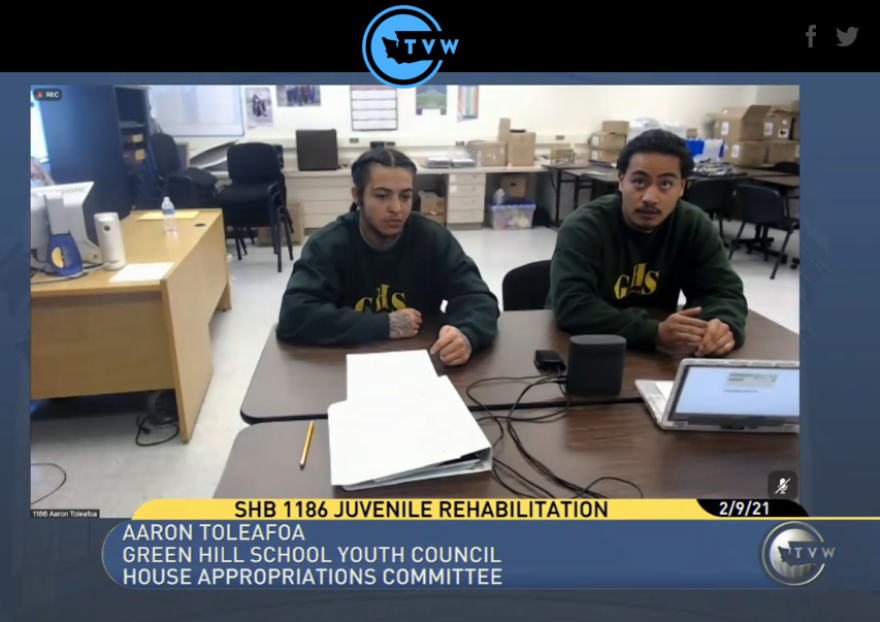It can be difficult for anyone who’s been incarcerated to readjust to life after getting out. A bill working its way through the Legislature would allow some young people in juvenile rehabilitation to serve part of their sentences in the community with the aim of facilitating a better transition.
They would be under the supervision of the Department of Children, Youth and Families, which would use technology to monitor their whereabouts. Allison Krutsinger is with the department and testified in favor at a House Appropriations Committee hearing.
“Therapeutic, less restrictive and supportive options for youth and young adults transitioning back into their community will reduce recidivism and reduce the racial and ethnic disparities we see in our juvenile justice population and the outcome trajectories that young men of color often experience,” she said.
The community transition services provided to young people through the program would include access to education, behavioral health treatment, job assistance and, if necessary, rental vouchers for up to six months.
The Washington Association of Sheriffs and Police Chiefs has raised concerns about the bill. One thing the group suggested is to have juveniles who are convicted as adults be excluded from community transition services. They also said they’d prefer to see a system that would be similar to the "graduated reentry" program that exists for adults getting out of prison.
But several young men who are serving or served time spoke in favor. Aaron Toleafoa, who has been active in juvenile justice reform and is incarcerated at Green Hill School, a juvenile rehabilitation facility in Chehalis, testified to the committee.
“This bill lets them do, in my opinion, what you should be doing as soon as they enter the juvenile justice system, which is laying a strong foundation for their future lives outside of the system,” he said. “This means building their résumés by working real jobs, getting real education and for jobs, of course, we know for offenders, you have to first find a job, which is hard itself.”
Another young man, Leo Lizarraga, said this kind of opportunity would strengthen family bonds.
“I have a son I would love to be with all day, every day, especially while he’s young,” he said. This program “helps me be on my own, working on my own and being a stable, lovable father for my son.”







